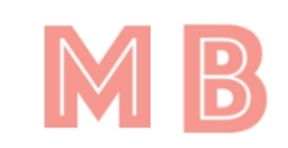September 2024: news for emerging authors
OK, who has a Bookseller account so that I can get behind the paywall? And now that I’m in, how is this relevant to me again?
Hello budding storytellers, and welcome to the back to school version of this column! If you were a bookworm at school like me, your "year" probably began on 1st September—when the sight of a fresh notebook gave you butterflies or the feel of a brand new pen in your hand opened up a world of possibilities.
But what has the industry been saying about what’s ahead? Well, as always, there are lessons to be learnt, homework for navigating the future and suggestions on finding your community during break time. Ok, enough of the school metaphors; let’s jump in.
Authors report "worst ever delays" with advances and royalties as some forced to survive on loans
You have probably already come across our first headline, which delivered some damning evidence against the state of author payments from big and small publishers alike. I won’t sugarcoat it: the results were not great.
If you work in any kind of freelance capacity, you’ll already know that chasing regular invoice payments can be demoralising. So, imagine hunting down an amount that can mean the difference between paying your bills or getting into a lot of debt. I’ve had a taste of it myself and it leads many to question whether this working-author life is worth it.
What I will say—what I always say—is equip yourself with the right information. Go over that book contract and those payment details with a fine toothed comb. When is payment expected? What happens when it’s delayed? What are your rights? Who can help? Put these questions to your publisher and your agent (if you have one) as early as possible. And engage with your local writer’s union to get advice on what to look out for in your contract.
I’m not saying this will solve an industry-wide issue of delayed payments, but it will give you something to legally point to if you ever experience any of these delays. It’s back to school season after all, and knowledge is power.
Speaking of, how well do you know your social media app of choice, and what is it adding to your writing life? Or more importantly, what is it taking away?
We need each other, no matter how loud our imposter syndrome, or how the algorithm pushes us towards envy and competition, or even when elements of the industry seem to benefit from our silence.
Industry in "unhappy marriage" with Twitter/X as Pan Mac says it is "pausing all activity"
Remember the heyday of Twitter (X)? You probably connected with other writers, added multiple books to your TBR pile and felt seen by other bookish types wanting to discuss character tropes and use memes to admit that there were some classics none of us had ever read and that was fine.
Sadly, those days are gone. Now X platforms a constant spread of disinformation and hateful speech and, just like an unhappy marriage, many of us have remained on the platform because of a better-the-devil-you-know situation. But it’s still the devil, right?
Whichever social platform you’re considering leaving, I encourage you to think not of what you might be losing, but what you might be regaining. Does posting on the app feel like it’s raising your blood pressure? Do you engage with more scam bots than people? And does the aftermath of scrolling leave you feeling so low that picking up a pen is the last thing you want to do?
Well, then it’s probably time to leave, or at least distance yourself. And yes, if you move platforms, you might lose some followers. But you’re not the same writer you were five years ago, right? The followers that have grown with you, and will continue to grow. Starting fresh is just another opportunity to reinvent yourself and find a new community along the way.
I will never tire of harping on about community, which is why I’m including this comment piece from Trapeze Books editorial director Sareeta Domingo.
Authors, you’re not alone
Through Orion’s Debut Writers Academy, Domingo witnessed the way writers bandied together and formed a supportive space as they all went through the debut-writer-journey at the same time.
A writing community can be hard to find and social media has played a big part in how we’ve all connected. But it doesn’t have to be the only way we do that. The success of the Debut Writing Academy has led to a newsletter that any emerging writer can now benefit from (debutwritersacademy.substack.com). There are tips on engaging booksellers and what to expect as a debut writer, but there are also diaries from those who have come before—and ways to engage and be in community with other writers.
We need each other, no matter how loud our imposter syndrome, or how the algorithm pushes us towards envy and competition, or even when elements of the industry seem to benefit from our silence.
Reading widely and engaging widely will only make us better writers and better creators. We’re sort of like one big group project, where everyone is accountable for everyone else, and together, we thrive.
